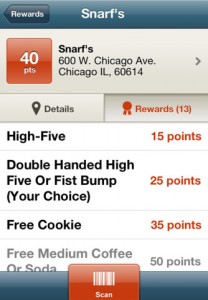 Is loyalty a thing of the past? Generations X and Y are naturally less loyal, believing in instant gratification. At most, these generations are concept loyal, not brand loyal, and they have grown up cynical and jaded by the attempts from companies to woo them with glossy adverts and false promises. Baby Boomers have also wised up. They have learnt through failed pension plans, medical schemes that don’t deliver and bank foreclosures, that even though Boomers now run the show, it does not mean that they are getting things the way they wanted them.
Is loyalty a thing of the past? Generations X and Y are naturally less loyal, believing in instant gratification. At most, these generations are concept loyal, not brand loyal, and they have grown up cynical and jaded by the attempts from companies to woo them with glossy adverts and false promises. Baby Boomers have also wised up. They have learnt through failed pension plans, medical schemes that don’t deliver and bank foreclosures, that even though Boomers now run the show, it does not mean that they are getting things the way they wanted them.
Added to this, technology has given customers a growing ability to determine seamlessly and in real time which company is offering the best benefits, price and experience. The combination of the Internet, social networks and mobile devices has dramatically shifted the balance of power in favour of customers. Companies are now more transparent than ever before.
Our most recent project at TomorrowToday Strategic Insights has been taking a look at what the future holds in store for the Rewards Programme Industry. Dean had an enviable trip to the Caribbean to present this but before he did, we were working hard to find some great stories! The good news (for Rewards Programmes) is that while loyalty, in the true emotional sense of the word, is becoming more difficult to obtain, today’s customer is very attuned to a ‘deal’ and expects more than just a purchase. Rewards programmes that continually offer value to the customer will tap into this desire and drive business.
The traditional model of purchase-earn-redeem, however, is quickly becoming inadequate. State-of-the-art systems can deliver rewards and offers at point of sale and mobile solutions offer deals-on-the go and ways of combining rewards, payments and offers. We found some great examples of innovative companies who are tapping into this trend and putting old-style reward programmes under a lot of pressure.
For example, a new breed of ‘aggregator’ apps recognize the headache consumers have in managing and tracking their various reward programmes. Points.com was one of the first, and its customers can now swap their rewards into PayPal credit, trade points with other users and even buy additional points – a truly flexible solution. A newer entrant, Milewise, has a travel search and booking functionality so that customers don’t have to leave the site to book flights with their rewards.
Geo-location and Augmented Reality can take this one step further and push offers and rewards to customers based on their location and preferences. Wikitude, for example, will show reviews and ratings for nearby businesses and offer the user associated deals and mobile coupons.
Rewards programmes have also sprung up in response to the increasing trend towards valuing the local and ethical, which is set to deepen as Generation Y emerges as highly-socially conscious.
Wedge is a London-based local loyalty card launched in July 2011, in which only stores with fewer than 10 branches can participate. The card costs £10 – £1 of which goes to supported local charities. Blue Dot is a scheme that rewards people for actively supporting charities by giving money or volunteering. Users can exchange their points for access to exclusive products and downloads from celebrities and career experiences from major brands. Gen Y job hunters can use the site to create a personalized resume that could help them reach new job opportunities.
There are many more examples in what is becoming a quite crowded space. The winners will be the programmes that know their customers inside out, that offer them multiple opportunities to collect rewards which can be used flexibly, and that utilise technology to work for the customer.
And that offer a bit of fun as well perhaps? Belly is a start-up with a great app, but its point of difference is the ability for participating businesses to tailor rewards – which they have been doing with enthusiasm! Current rewards include 10 minutes of all you can eat cupcakes at a bakery, a comic book store that offers customers a chance to punch the owner in the stomach, an arm wrestle with a sandwich restaurant owner, or to have a portrait of the customer plus dog displayed on the wall of a Pet Parlour – and who wouldn’t be tempted by those?!!


